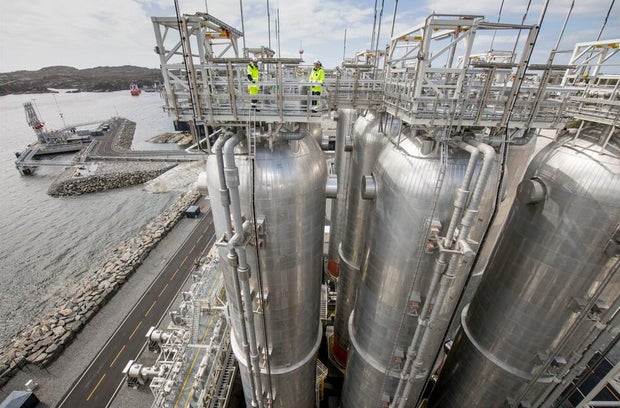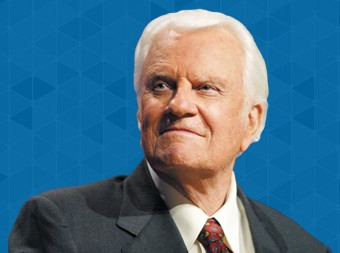World's first commercial carbon storage facility begins operations, injecting CO2 deep under North Sea seabed
Posted by SleekNews
Tue, August 26, 2025 12:19am

The liquefied CO2 (LCO2) carrier Northern Pioneer of Northern Lights is pictured at Akershuskaia, Oslo, June 17, 2025 in connection with the international high-level conference on carbon management. STIAN LYSBERG SOLUM/NTB/AFP/GETTY
The world's first commercial service offering carbon storage off Norway's coast has carried out its inaugural CO2 injection into the North Sea seabed, the Northern Lights consortium operating the site said Monday.
The project by Northern Lights, which is led by oil giants Equinor, Shell and TotalEnergies, involves transporting and burying CO2 captured at smokestacks across Europe. The aim is to prevent the emissions from being released into the atmosphere, and thereby help halt climate change.
"We now injected and stored the very first CO2 safely in the reservoir," Northern Lights' managing director Tim Heijn said in a statement. "Our ships, facilities and wells are now in operation."
In concrete terms, after the CO2 is captured, it is liquified and transported by ship to the Oygarden terminal near Bergen on Norway's western coast.
It is then transferred into large tanks before being injected through a 68-mile pipeline into the seabed, at a depth of around 1.6 miles, for permanent storage.
Carbon capture and storage (CCS) technology has been listed as a climate tool by the United Nations' Intergovernmental Panel on Climate Change (IPCC) and the International Energy Agency (IEA), especially for reducing the CO2 footprint of industries such as cement and steel that are difficult to decarbonize.
The first CO2 injection into the Northern Lights geological reservoir was from Germany's Heidelberg Materials cement plant in Brevik in southeastern Norway.
But CCS technology is complex, controversial and costly.
Without financial assistance, it is currently more profitable for industries to purchase "pollution permits" on the European carbon market than to pay for capturing, transporting and storing their CO2.
Northern Lights has so far signed just three commercial contracts in Europe. One is with a Yara ammonia plant in the Netherlands, another with two of Orsted's biofuel plants in Denmark, and the third with a Stockholm Exergi thermal power plant in Sweden.
Largely financed by the Norwegian state, Northern Lights has an annual CO2 storage capacity of 1.7 million tons, which is expected to increase to 5.5 million tons by the end of the decade.
While efforts such as Northern Lights are focused on capturing carbon directly from the most highly-polluting sources — industrial smoke stacks — there have also been efforts launched to capture the gas from the ambient air, an even more controversial methodology.
Mark Jacobson, a Stanford University professor of environmental engineering, told CBS News earlier this year that he was dubious of the motivations for and the efficacy of both kinds of carbon capture, and he said bluntly that "direct air capture is not a real solution. We do not have time to waste with this useless technology."
Jacobson thinks direct air capture, in particular, is a boondoggle, and more effort should be focused on switching to clean energy sources.
Currently, the U.S. gets about 60% of its electricity from fossil fuels.
"You have to think about who's proposing this technology," Jacobson said. "Who stands to benefit from carbon capture and direct air capture? It's the fossil-fuel companies."
"They're just saying, 'Well, we're extracting as much CO2 as we're emitting. Therefore, we should be allowed to keep polluting, keep mining," Jacobson told CBS News, adding that his stance has not made him popular among many in the energy sector.
"Oh, yeah, diesel people hate me, gasoline people hate me, ethanol people hate me, nuclear people hate me, coal people hate me. They do, because I'm telling the truth," he said. "We don't need any of these technologies."

The Northern Lights carbon storage site in Øygarden, Norway, is seen on May 28, 2025. THE WASHINGTON POST/GETTY
Source
|








